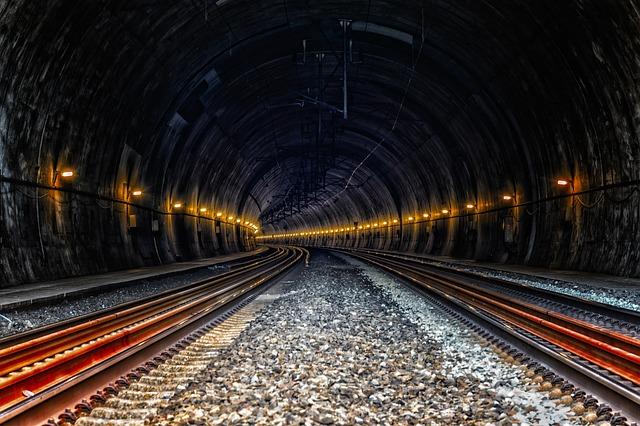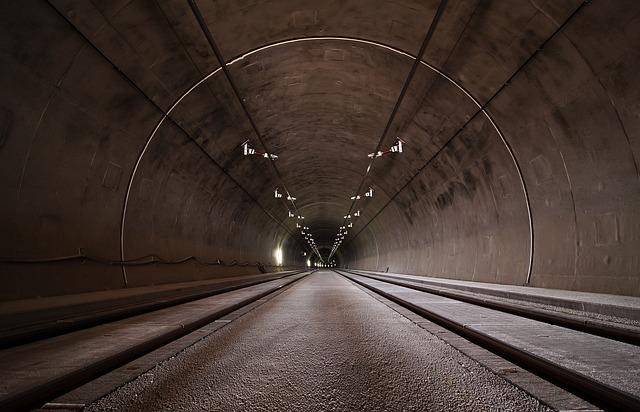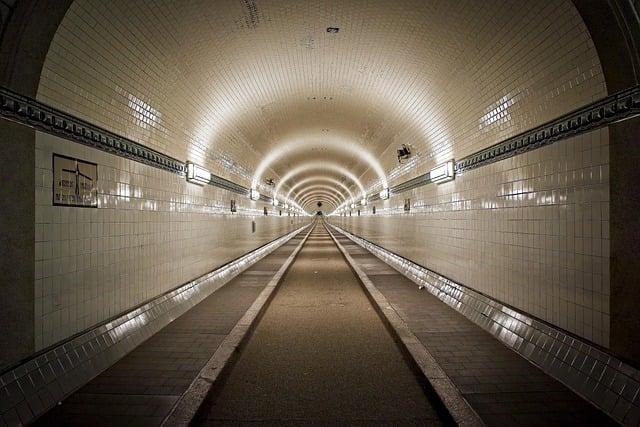Bangabandhu Tunnel: Striking a Chord Between Expenditure and Revenue
In a groundbreaking growth for Bangladesh’s infrastructure, the Bangabandhu Tunnel, the country’s first underwater tunnel, has garnered both admiration and scrutiny since its inauguration. While it stands as a monumental feat of engineering, drawing attention too the nation’s ambitions for connectivity and modernization, financial analysis reveals a stark contrast between the costs incurred and the anticipated revenue. Its construction expenses have far surpassed projections,leading to concerns over the tunnel’s long-term viability and sustainability as a revenue-generating asset. This article delves into the financial dynamics of the Bangabandhu Tunnel, exploring the intricacies of its expenditure versus income. It aims to provide a comprehensive overview of the challenges faced in realizing a project that symbolizes hope for enhanced transportation while highlighting the stark economic realities that accompany such enterprising undertakings.
Bangabandhu Tunnel Project: A Financial Overview of Expenditure Versus Income

The financial landscape of the Bangabandhu Tunnel Project has drawn considerable attention due to the evident disparity between its soaring expenditures and the income generated. While the vision behind this ambitious infrastructure endeavor was to promote connectivity and boost the economy, the actual financial outcomes tell a different story. Key factors contributing to the escalating costs include:
- Construction delays that lead to increased labor and material costs.
- Design modifications that were necessary to meet safety and regulatory standards.
- Unexpected geological challenges that necessitated additional engineering solutions.
On the income side, the anticipated revenue streams from toll collections and related economic activities have not materialized as expected. Initial projections indicated a rapid return on investment; however,various challenges have hindered revenue generation,including:
- Lower than expected traffic volume,severely impacting toll income.
- Operational costs that continue to accumulate, further straining financial resources.
- Market fluctuations disrupting tourism and trade in the region.
| Financial Aspect | Estimated Value | Current Status |
|---|---|---|
| Total Expenditure | BDT 25 billion | Exceeding estimates |
| Projected Annual Income | BDT 5 billion | BDT 2 billion |
| Estimated ROI timeline | 5 years | Uncertain |
Assessing the Economic Impact of the Bangabandhu Tunnel on Local Communities

The bangabandhu Tunnel, a transformative infrastructure project, presents a complex interplay of costs and benefits to local communities. While it promises to enhance connectivity and stimulate economic activity, initial assessments indicate that the financial outlay may outweigh the anticipated income. Local businesses are hopeful for increased traffic, yet the reality of higher operational costs and the need for investment in complementary infrastructure cannot be overlooked. As the tunnel facilitates easier access to previously isolated areas, it is crucial to evaluate how such changes will genuinely contribute to community livelihoods.
To better understand the economic impact, let’s consider various factors at play:
- Increased Accessibility: Improved transport links may attract new businesses.
- Job Creation: Construction and maintenance jobs during the tunnel’s lifecycle.
- Local Business Impacts: Shifts in consumer patterns could benefit or hurt existing businesses.
However, the financial implications remain a major concern. Below is a table outlining projected expenditures versus expected income in the first few years post-opening:
| Year | Projected Expenditure (Million BDT) | Expected Income (Million BDT) |
|---|---|---|
| 1 | 500 | 200 |
| 2 | 300 | 250 |
| 3 | 250 | 300 |
This disparity indicates a pressing need for local policymakers to develop strategies that amplify the tunnel’s benefits while minimizing its financial burden on the communities. Collaborative efforts between government officials and local stakeholders will be paramount in addressing the challenges and ensuring that economic growth is equitable and sustainable.
Environmental Considerations: Balancing Development and Ecological Concerns

As the Bangabandhu tunnel project progresses, it raises significant questions surrounding environmental sustainability and the potential impacts on surrounding ecosystems. While the promise of improved infrastructure and connectivity is appealing,the hidden expenses related to environmental degradation could overshadow these benefits. Concerns include:
- Habitat Disruption: Construction activities can lead to the destruction of local wildlife habitats, affecting biodiversity.
- Pollution: Increased traffic following the tunnel’s completion may result in higher levels of air and noise pollution.
- Water Resource Strain: The development could lead to overexploitation of local water resources, impacting both wildlife and community residents.
Addressing these challenges requires a careful and thoughtful approach that prioritizes ecological balance. It is indeed essential to implement rigorous environmental assessments and ensure compliance with sustainability regulations. A potential pathway to mitigate impacts is the introduction of a Green Infrastructure Plan that includes:
| Initiative | Purpose |
|---|---|
| Wildlife Corridors | Facilitate safe passage for animals, minimizing habitat fragmentation. |
| Pollution Control Measures | Implement technologies to reduce emissions and treat wastewater effectively. |
| Community Engagement Programs | Involve local communities in decision-making to align development with ecological preservation. |
Recommendations for Sustainable Management of tunnel Operations and Costs

To ensure the long-term viability of tunnel operations like the Bangabandhu tunnel, it is indeed essential to adopt a series of sustainable management practices. These practices not only aim to balance income and expenditure but also focus on optimizing operational efficiency. Key recommendations include:
- Innovative Revenue Streams: Explore alternative income sources such as toll payments tailored to vehicle categories,advertising partnerships,and sponsorships from local businesses.
- Regular maintenance Programs: Implement structured maintenance schedules to minimize emergency repairs and prolong the lifespan of infrastructure.
- Technology Integration: Use smart tunnel management systems that leverage data analytics for traffic flow management and predictive maintenance.
- Community Engagement: foster collaboration with local communities to enhance education on the tunnel’s benefits and secure public support.
Additionally, strategic financial planning is crucial for sustainable operations. By optimizing expenditure while maximizing operational capacity, authorities can establish a more balanced budget. The following table outlines potential areas of focus for improving financial performance:
| Focus Area | Potential Savings | Potential Revenue |
|---|---|---|
| Energy Efficiency Upgrades | 20% Reduction in Utility Costs | – |
| Improved Traffic Management | – | Increased Toll Revenue |
| partnerships with Local Businesses | – | 10% Increase in Advertising Revenue |
Future Prospects: Strategies for Enhancing Revenue Generation from the Tunnel

to bolster revenue generation from the tunnel, a multi-faceted approach is essential. First, enhancing traffic management systems to optimize vehicle flow could increase the throughput of users.Implementing dynamic pricing models during peak times can further maximize income, encouraging users to travel during off-peak hours.Additionally, promoting local tourism initiatives and showcasing nearby attractions can entice more visitors, consequently driving up tunnel traffic. Effective marketing strategies that highlight the tunnel’s advantages, such as travel time savings, are also pivotal.
Moreover, exploring alternative revenue streams may significantly impact the overall financial health of the tunnel. Establishing partnerships with local businesses to create joint promotions can lead to increased patronage on both sides of the tunnel. Introducing toll discounts for frequent users and commuters can improve customer loyalty, while the construction of service areas featuring retail, dining, or entertainment options could encourage longer visits and heighten spending. Furthermore, leveraging advertisement opportunities within the tunnel space offers an innovative way to generate additional funds, targeting both drivers and passengers effectively.
Public Accountability and transparency in Bangabandhu Tunnel Financing
The financing of the Bangabandhu Tunnel has opened a crucial dialog on the need for enhanced public accountability and transparency in infrastructure projects. As the expenditures have ballooned,outpacing the expected revenue,questions have emerged regarding the mechanisms that oversee fund allocation and spending. Key stakeholders, including government bodies and financial institutions, must provide clear and comprehensive reporting on how taxpayer money is utilized. This should include:
- Detailed spend analysis: Breakdown of costs versus expected income.
- Regular audit reports: Self-reliant reviews of financial documents.
- Public consultations: Engaging community members in discussions regarding project outcomes.
An essential component of fostering public trust is the establishment of a transparent framework governing project finances. This should involve a publicly accessible repository of financial data, allowing citizens to track expenditures real-time. Moreover, the development of an oversight committee comprising local representatives can act as a watchdog, ensuring that spending aligns with stated goals. To illustrate the fiscal landscape surrounding the tunnel, the following table highlights key financial metrics over the past fiscal year:
| Financial Metric | Amount |
|---|---|
| Total Expenditure | $500 million |
| Projected Income | $300 million |
| Funding Shortfall | $200 million |
In Summary
the Bangabandhu tunnel, heralded as a transformative infrastructure project, faces a stark reality as it grapples with financial challenges. The disparity between expenditure and income raises pertinent questions about the long-term sustainability of such ambitious initiatives. As authorities are tasked with navigating these fiscal hurdles,it becomes imperative to reassess strategic planning and ensure that future infrastructure projects not only enhance connectivity but also align with economic viability. Continued scrutiny and informed dialogue will be crucial in safeguarding the interests of stakeholders and the public, as the implications of the tunnel’s financial landscape unfold in the coming years. The conversation surrounding the Bangabandhu tunnel highlights broader issues of accountability and resource management in Bangladesh’s infrastructure development agenda.















